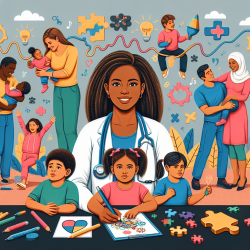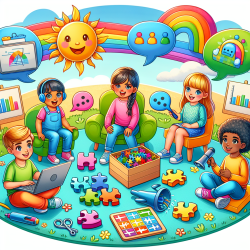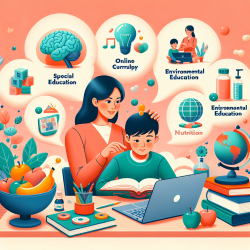Understanding Dual Diagnosis: A Call for Enhanced Care
In the realm of speech language pathology, understanding the complexities of dual diagnosis—where individuals face both developmental disabilities and mental health challenges—is crucial. Recent research, such as the study "Care Experiences of Adults With a Dual Diagnosis and Their Family Caregivers," provides valuable insights that can be leveraged to improve outcomes for children facing similar challenges.
The Research Insights
The study conducted qualitative interviews with adults having a dual diagnosis and their family caregivers. The findings highlighted significant challenges, including misunderstanding, stigma, and insufficiently coordinated services. Families often provide informal care, filling gaps left by the system. The study underscores the need for person- and family-centered care, navigation support, and capacity building to address these challenges effectively.
Implementing Research Outcomes
For practitioners in the field of speech language pathology, integrating these research outcomes into practice can be transformative. Here are some actionable steps:
- Adopt a Family-Centered Approach: Engage families in the care planning process, recognizing their role as critical partners in managing dual diagnosis.
- Enhance Communication: Develop clear communication channels between caregivers and professionals to ensure a cohesive care strategy.
- Provide Navigation Support: Assist families in navigating the complex healthcare system, helping them access necessary resources and services.
- Focus on Capacity Building: Offer training and resources to caregivers and professionals to better understand and manage dual diagnosis.
Encouraging Further Research
The study also highlights the need for ongoing research into the life span needs of individuals with dual diagnosis. Practitioners are encouraged to contribute to this body of knowledge by conducting further research and sharing findings with the broader community. Collaborative efforts can lead to the development of more effective interventions and support systems.
Conclusion
By embracing the insights from this research, practitioners can play a pivotal role in enhancing the care experiences of children with dual diagnosis. Implementing person- and family-centered care strategies, improving communication, and supporting caregivers are essential steps toward achieving better outcomes. Together, we can create a more inclusive and supportive environment for children and their families.
To read the original research paper, please follow this link: Care Experiences of Adults With a Dual Diagnosis and Their Family Caregivers.










